Couch Grass- Your Guide
Couch grass, sometimes referred to in other markets as ‘Bermuda Grass’ and less frequently by its scientific name Cynodon dactylon, has been a staple of the Australian lawn ...

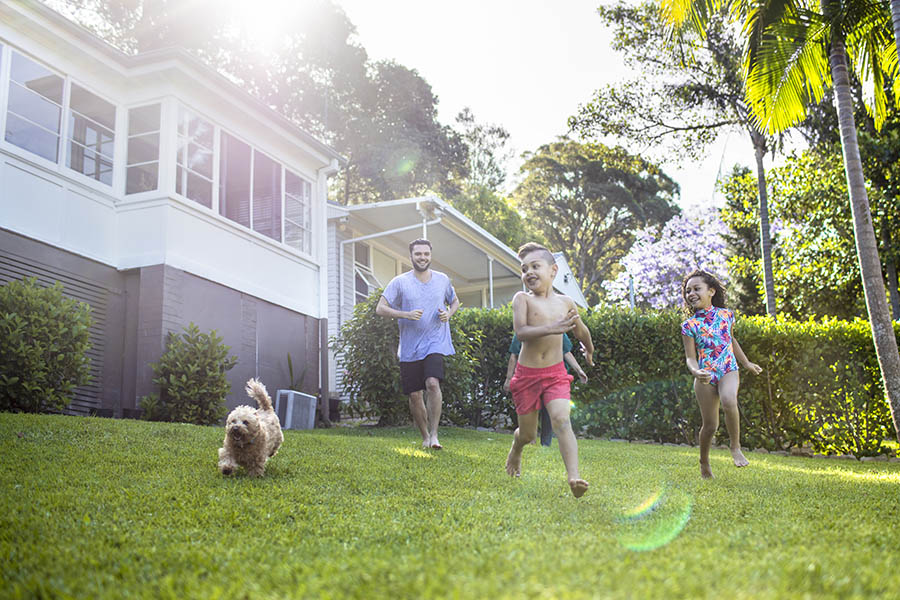 This is a comprehensive overview to compare the eight most popular grass & lawn types in Australia.
This is a comprehensive overview to compare the eight most popular grass & lawn types in Australia.
All grass varieties in this article are warm-season grasses, suitable for use in all the warmer regions of Australia.
Different grass types have different leaf widths, features, tolerance levels and appearance. So there isn’t a one-size-fits-all solution when choosing a new lawn.
To ensure you choose the right grass for your home, you need to carefully consider the features of each grass type and variety to assess which is most suited to your location and maintenance preferences.
The above are the most common grass varieties found throughout Australia. Within these over-arching grass types, there are multiple varieties to choose from – all bringing their own unique characteristics and features to the table.
Aussie homeowners have a vast array of turf varieties available to choose from that suit many different conditions and lifestyle circumstances. Below is a breakdown of each grass type in Australia, and their respective varieties.
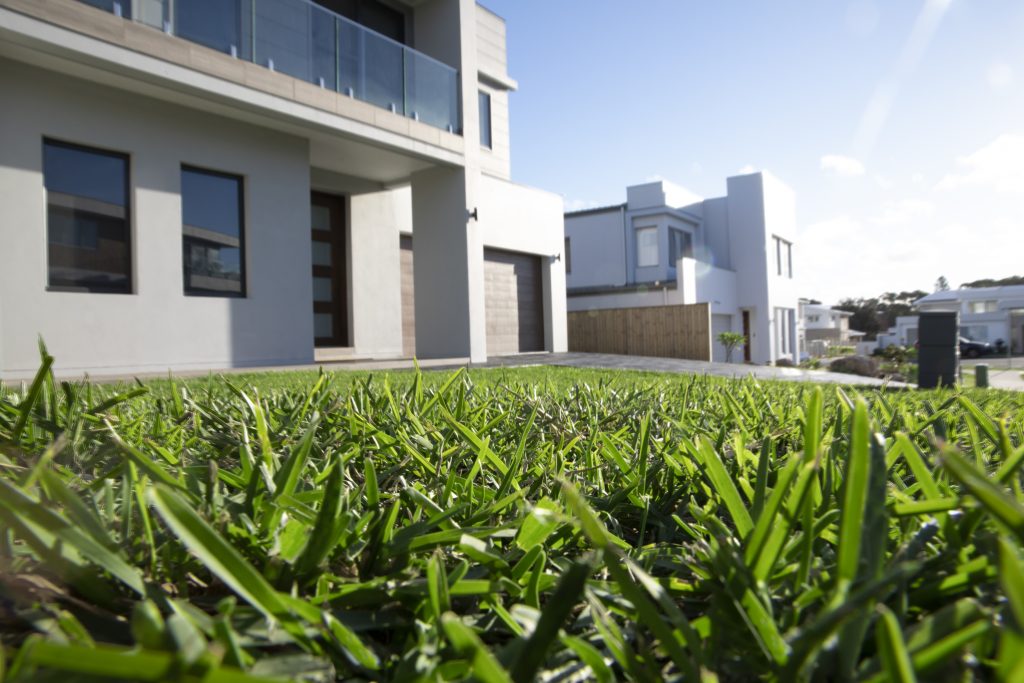
Buffalo grass is a long-standing favourite lawn type in Australia. It is known to be durable and easy to grow and maintain, and of course… Buffalo grass is best known for its very wide leaf blade.
Buffalo grass lawns often led to many complaints in days gone by about its scratchy nature which was often highly irritating to the skin, especially to the skin of young children who played on it the most.
Those days are long past, we the introduction of many quality Soft Leaf Buffalo lawn types. These new soft Buffalo grasses are no longer irritating, are very soft and inviting for play, and can make a beautiful, lush lawn when cared for properly.
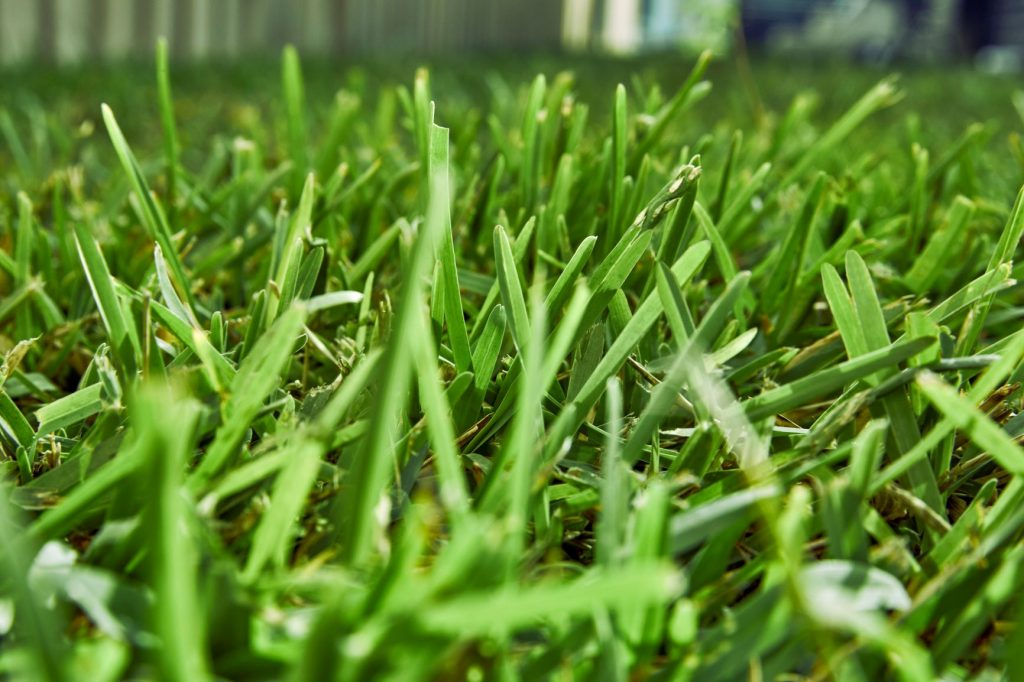 Soft leaf Buffalo Grasses generally have a broad leaf, which is rounded in appearance and has been bred to be soft to touch and underfoot. Buffalo grasses also have a spreading growth habit with both their stolons and rhizomes.
Soft leaf Buffalo Grasses generally have a broad leaf, which is rounded in appearance and has been bred to be soft to touch and underfoot. Buffalo grasses also have a spreading growth habit with both their stolons and rhizomes.
The typical leaf size for a broad leaf Buffalo grass is anything from 7mm wide and upwards. Examples of Buffalo grasses that have a broad leaf are Prestige and Palmetto Soft Leaf Buffalo. The other popular Buffalo grass that has a medium–broad leaf is Sapphire Soft Leaf Buffalo. Medium-broad leaf grasses are similar to a broad leaf in size, but their growth habits mean the broad leaf folds at a 90-degree angle giving the appearance of medium-broad leaf – such as Sapphire turf.
New Soft Leaf Buffalo types include Prestige®, Palmetto® and Sapphire®.
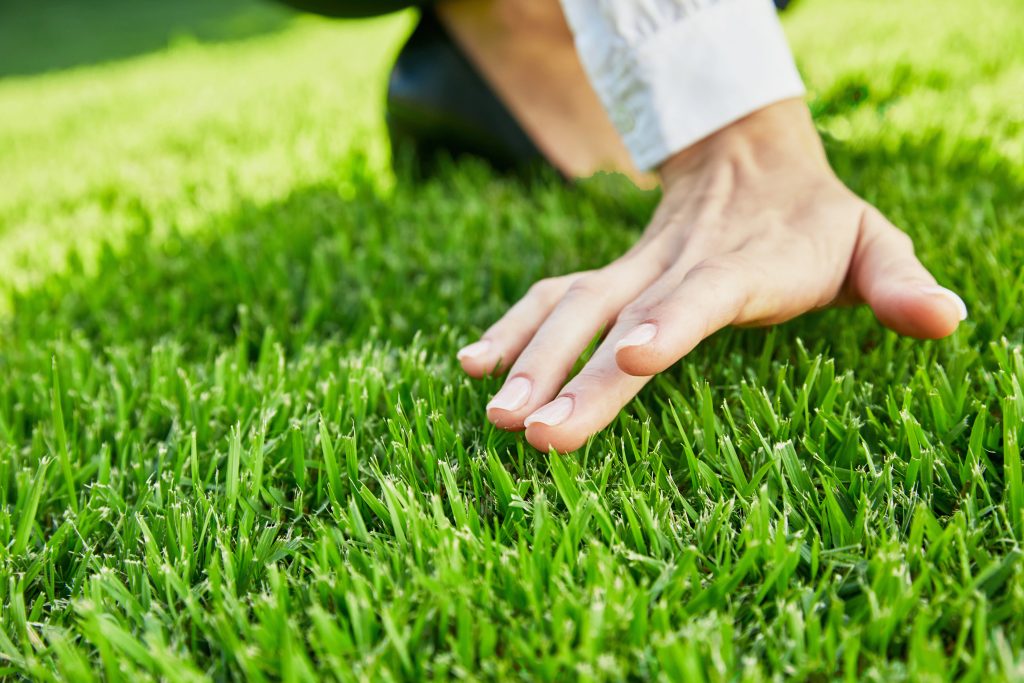
Zoysia Grass had a rocky introduction to Australia, even though it has been in the country for a very long time. This was probably due to the names it was given during its earliest introduction. Names such as Manilla Grass, Korean Grass and Temple Grass just never resonated with Australians – perhaps because they sound more suited to ornamental grasses rather than home lawns.
Zoysia, however, is a great grass. It is highly tolerant to heat; has very low lawn mowing requirements; very low fertiliser requirements; is salt tolerant; very drought tolerant; looks good all year round in warmer regions; can be forgotten in the winter; has low invasive properties, and it can be abused and recover (at a slightly slower rate than Couch).
Zoysia grass has a slightly wider leaf blade than Couch, which tapers to its tip. It is a warm-season grass which will enjoy all the warmer regions of Australia, but not the colder regions. Zoysia has both above and below ground rhizomes which greatly aid in its low water use, drought tolerance and recovery.
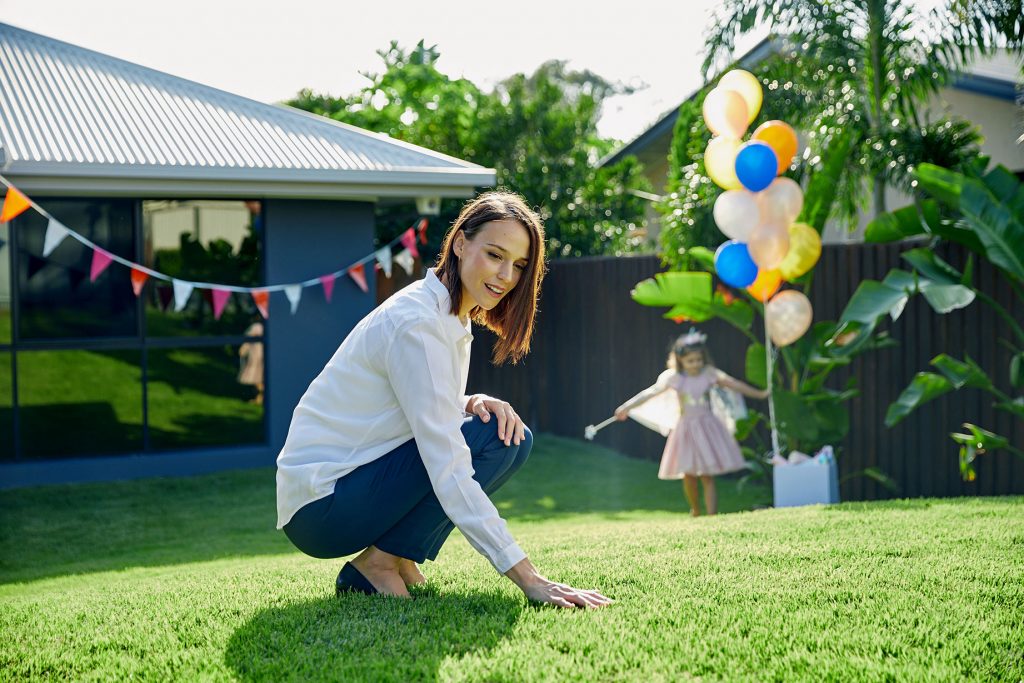 Zoysia grasses can be defined by their pointy leaf tip. Zoysia grasses also have a dense, spreading growth nature with both the stolons and rhizomes. Generally, the leaf size of Zoysia grasses fits between the two categories of fine and medium. Fine–medium leaf size ranges from between 4mm-7mm and includes Zoysia grasses such as Empire and Nara Native. The fine leaf classification is the narrowest of all leaf types and typically less than 4mm, grasses such as Augusta Zoysia fit into this category.
Zoysia grasses can be defined by their pointy leaf tip. Zoysia grasses also have a dense, spreading growth nature with both the stolons and rhizomes. Generally, the leaf size of Zoysia grasses fits between the two categories of fine and medium. Fine–medium leaf size ranges from between 4mm-7mm and includes Zoysia grasses such as Empire and Nara Native. The fine leaf classification is the narrowest of all leaf types and typically less than 4mm, grasses such as Augusta Zoysia fit into this category.
Zoysia deserves to be a far more popular and widely used grass variety in Australia, for homes, business, and government and municipal grounds use. Varieties include EmpireTM, Jari Blu® and Native NaraTM.
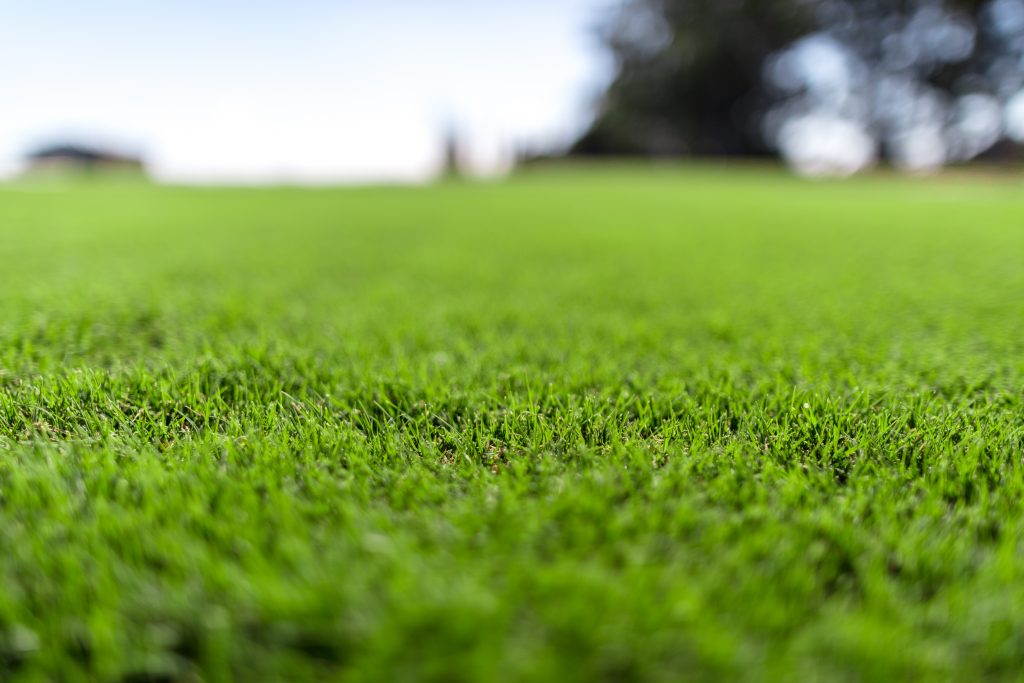
Couch Grass has always been a popular lawn type based on its low price, durability and easy care. It can also be made to look top-notch without many problems. Couch is a fine leaf lawn which has some excellent qualities.
In favour of Couch is it’s, quick growth; ability to withstand wear and tear; quick repairability; softness; and it can produce a lovely looking lawn when properly cared for and mowed regularly.
Couch requires regular lawn mowing in the warmer months, and de-thatching when necessary is also a good idea. Couch grass will also require a good year-round fertilising regime to stay looking it’s best, otherwise, it can quickly become straggly, bare and ugly. Couch can quickly creep under fences, into garden beds and other areas which are not our lawn. This happens because of the vigorous underground runners which this grass is known for.
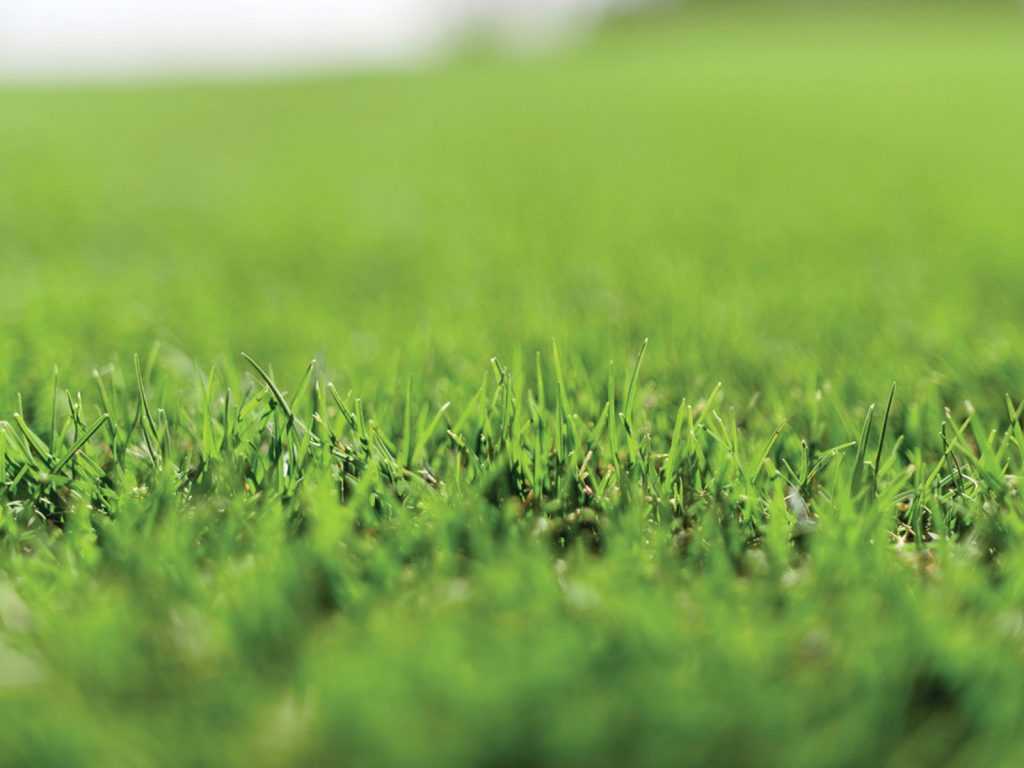 Couch grasses have a very fine pointy leaf tip and a typical leaf size of less than 4mm. Couch grasses have a very evasive growth habit with spreading rhizomes and stolons.
Couch grasses have a very fine pointy leaf tip and a typical leaf size of less than 4mm. Couch grasses have a very evasive growth habit with spreading rhizomes and stolons.
A variety of choice is OZTUFF® and Stadium® Couch.
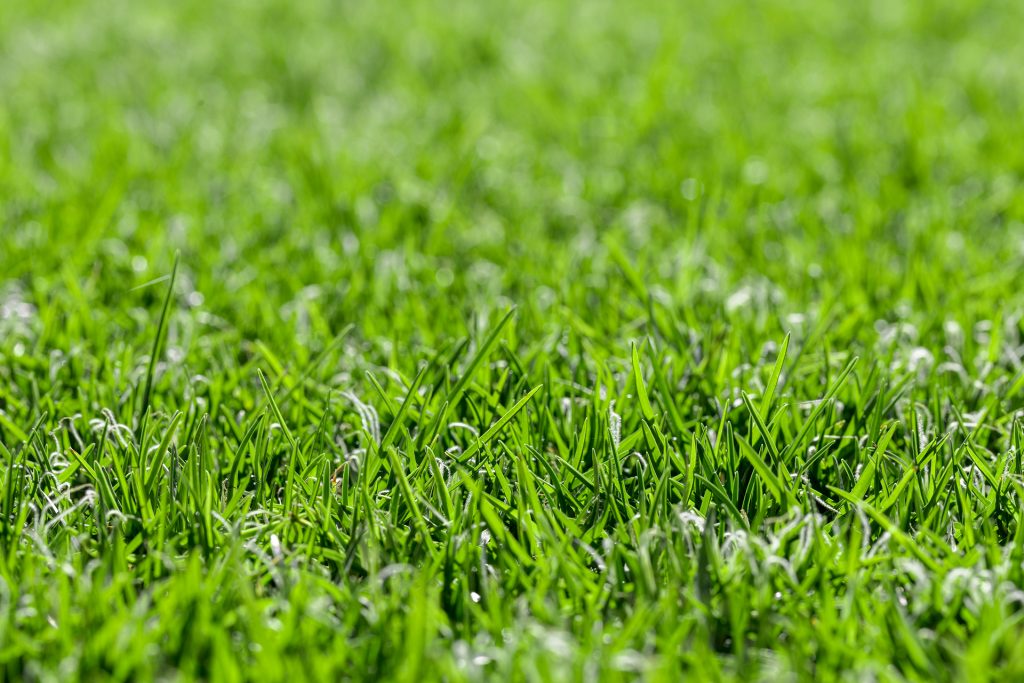
Kikuyu turf was another of the mainstays of Australian lawns in days gone by, as well as still today. Kikuyu grass is named for the most populous ethnic grass group in Kenya.
Kikuyu has a medium leaf width, a bright green leaf colour, is quite soft, and loves the heat, the humidity and full sun, it is also extremely adaptable with an ability to grow in very poor soil types.
But what sets Kikuyu apart from all other grasses, is that it is fast-growing, and can also become invasive. Kikuyu can be high maintenance as it may require weekly lawn mowing throughout the warmer months if it is receiving all adequate requirements. However, Kikuyu is very popular in parks and ovals, and for homes with heavy wear and tear requirements for the lawn, such as having large dogs and busy hard-playing kids.
Male Sterile Kikuyu is a welcome addition to the Kikuyu family. It is of a higher quality than standard common Kikuyu grass, and has sterile seed heads so it cannot reproduce a new lawn elsewhere if the seed escapes – such as your neighbour’s lawn, or the open environment.
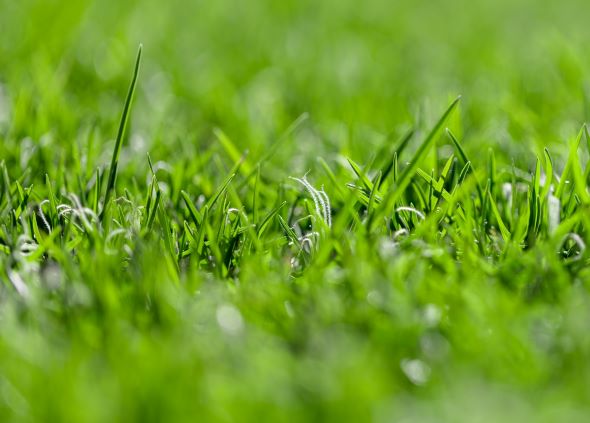 Kikuyu grasses love full sun, have a fine-medium leaf blade (ranging from between 4mm-7mm) and a dense, spreading growth nature of both the stolons and rhizomes. Kikuyu grasses also have a pointier leaf tip compared to other grasses such as Buffalo. An example of Kikuyu grass with a fine-medium leaf blade is Kenda – unlike common Kikuyu, Kenda is bred to be sterile and produce minimal seed head reducing its likelihood of invading surrounding properties or causing problems for allergy sufferers.
Kikuyu grasses love full sun, have a fine-medium leaf blade (ranging from between 4mm-7mm) and a dense, spreading growth nature of both the stolons and rhizomes. Kikuyu grasses also have a pointier leaf tip compared to other grasses such as Buffalo. An example of Kikuyu grass with a fine-medium leaf blade is Kenda – unlike common Kikuyu, Kenda is bred to be sterile and produce minimal seed head reducing its likelihood of invading surrounding properties or causing problems for allergy sufferers.
Our variety of choice is Kenda® Kikuyu.
Climate is another factor to consider when making the exciting decision about which grass type you want for your new lawn. It’s also important to consider the climate conditions of wherever you are located in Australia before pulling the trigger on a specific grass type.
Before any decisions are made on what lawn suits your climate and personal needs. Look at these lawn characteristics:
Below we have compiled some of the best grass types for each capital city/state in Australia.

Any lawn variety you choose for either south-east or North Queensland must be able to cope with dry, sub-tropical to tropical conditions.
For most locations within QLD, it comes back to the amount of sun or shade your area receives and whether you want a drought-tolerant, robust variety of low maintenance.
Four suitable kinds of grass for Queensland are:
Kikuyu grass, however, is more suited to the warm temperate climate of the Lockyer Valley and the Darling Downs regions of Queensland.
Read more about the best grass types for Brisbane.
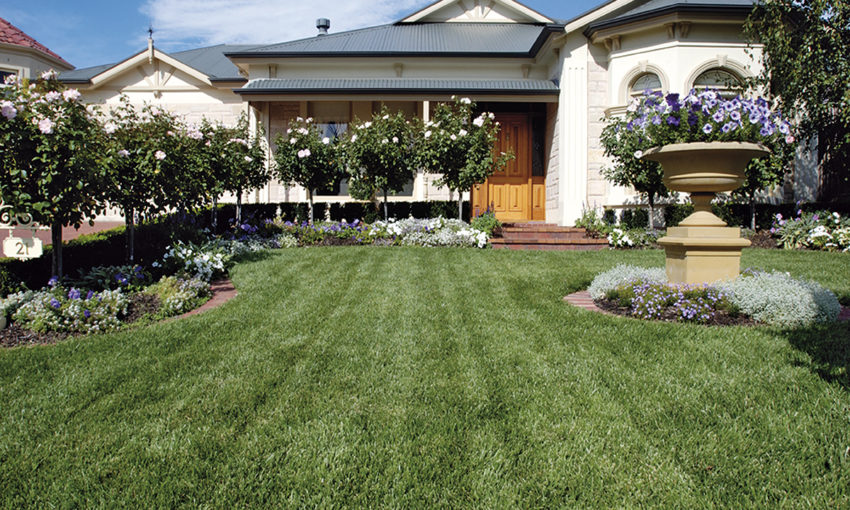
Weather-wise, Adelaide is a town of contrasts.
The Mediterranean climate gives rise to chilly, single figure overnight lows in winter, before turning on the burners over summer, with the dry, penetrating sun so often raising the mercury above the 40°C mark.
Adelaideans need a turf that won’t brown off with the occasional frost, but that will also be able to cope with the scorching, bone-dry temperatures of January through to March.
The two most suitable kinds of grass for Adelaide are:
Based on what characteristics you need and want in a lawn you can choose from either a Buffalo or a Kikuyu grass.
Read more about the best grass types for Adelaide.
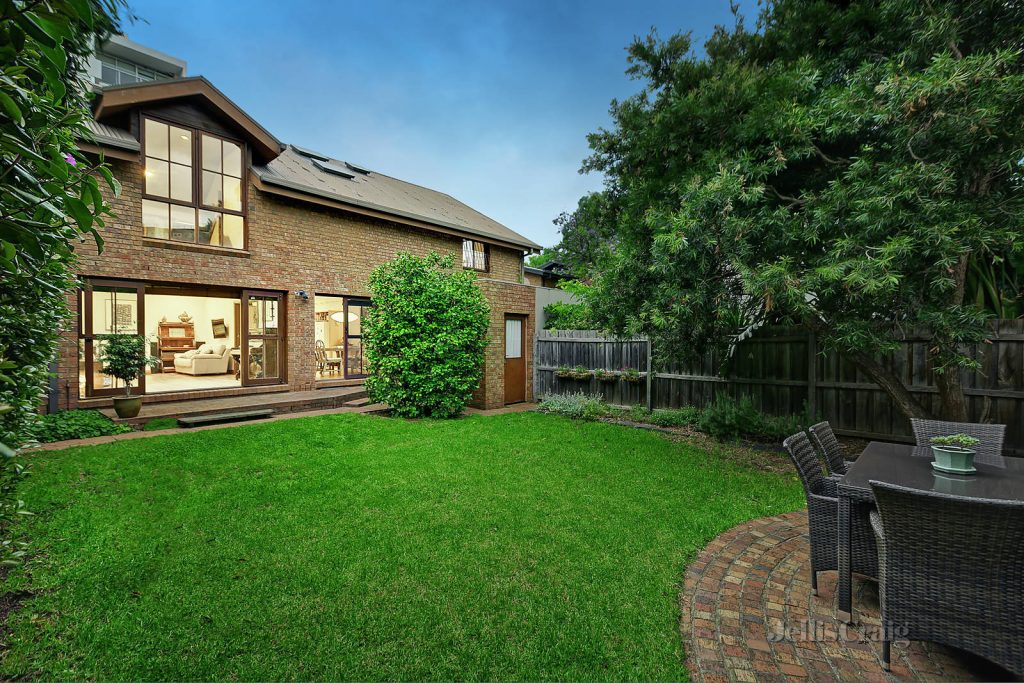
As Melbourne’s weather is notorious for being changeable when it comes to the best lawn recommendations, there is not one variety that comes out on top.
Remember that Melbourne’s weather is different to both New South Wales and Queensland and predominantly has become quite wet in the spring and summer months with dryer, colder winters.
The best warm-season grass varieties for Melbourne are:
Read more about the best grass types for Melbourne.
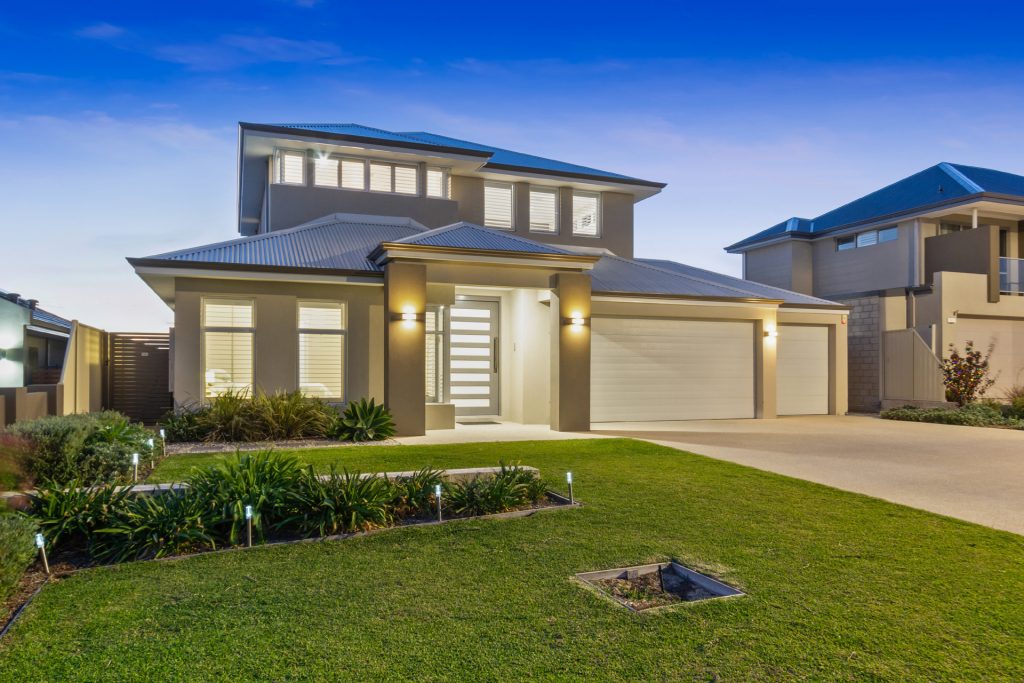
Perth is Australia’s sunniest capital, averaging almost nine sun-drenched hours per day throughout the year.
Perth also has relatively clearly defined seasons, with a hot dry summer working into a cool, wet winter.
For Perth lawns, frosts are a rarity, with the very mild winters a trademark of Perth’s hot-summer Mediterranean climate with low humidity.
The best warm-season grass varieties for Perth are:
Read more about the best grass types for Perth.
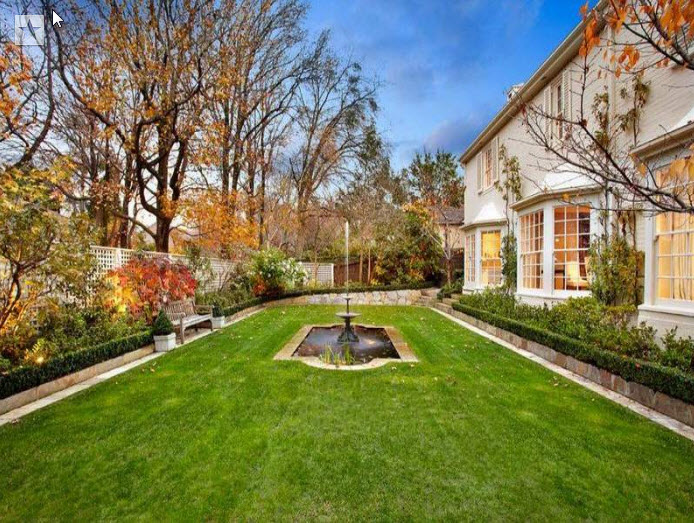
With seasonal conditions varying from hot and humid to wet and cold, there are many kinds of grass to choose from for Sydney homeowners.
Before any decisions are made you need to find a lawn that suits your demographics and personal needs. Then based on what characteristics you need and want in your lawn.
Sydney offers a large selection of suitable grass types:
Read more about the best grass types for Sydney.
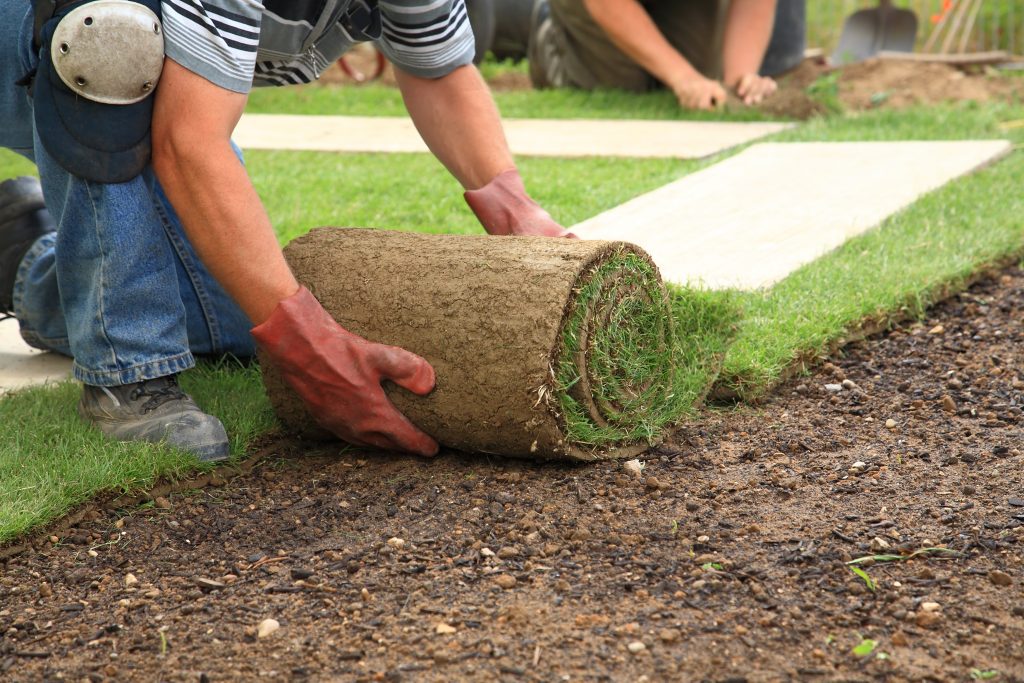
Our turf varieties can be found in lawns across Queensland, New South Wales, ACT, Victoria, South Australia, Western Australia and the Northern Territory.
To find your local turf supplier, simply enter your desired turf type and location into our online supplier locator tool.
Most of the above turf varieties retail between $12 and $18 per square metre. To get pricing info for your desired turf breed, visit our Find Your Turf page or get 3 quotes from your local grower today.
The main grass types in Australia are Buffalo Grass, Couch Grass, Zoysia Grass & Kikuyu Grass
Turf cost can range anything from $7 per metre square for a Kikuyu to $26 per metre square for a high-quality Zoysia variety such as Augusta
New lawns need to be watered every day and sometimes more than once a day to keep the soil moist. Do not allow the top 1.5cm of the soil to become dry until the grass is about 2.5cm tall. Once the lawn is 2.5cm tall, water every other day until grass is established (approximately three to four weeks).
You can lay turf anytime in all parts of the country (such as Western Australia, Queensland and New South Wales), except southern states. In states such as Victoria, South Australia and Tasmania it is best to avoid laying between May 15 to August 15 because this is during the winter.
In order, Kikuyu, Couch and Buffalo.
The best way to identify your grass is by looking at the leaf blade. Different grasses have different leaf widths, folds, tip shapes and colours which offer different soft to touch underfoot and aesthetic appearances. Grass types vary in the width of their leaves and whether leaf tips are sharp-pointed, rounded or boat-shaped.